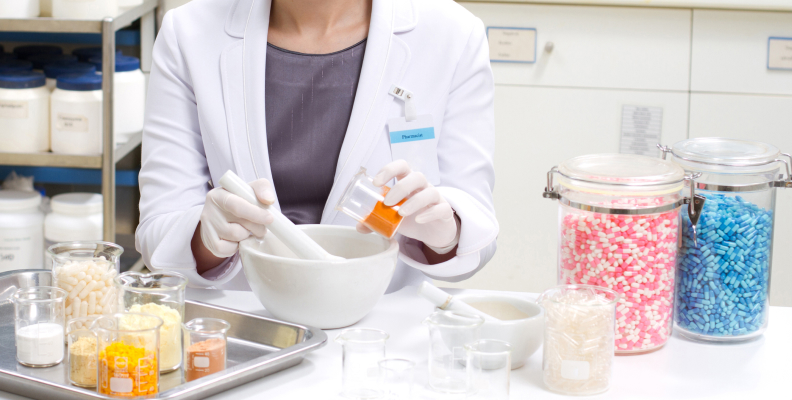Compounding Pharmacy - The Art of Personalized Medicine
What is Compounding in Pharmacy?
Compounding is the custom preparation of medications to meet the unique needs of patients.
Unlike mass-produced drugs, compounded medications are tailored by pharmacists based on a
doctor’s prescription.
Why is Compounding Important?
Many patients require specialized medications that aren’t available commercially.
Compounding allows pharmacists to:
✅ Adjust dosage strengths
✅ Remove allergens (e.g., gluten, lactose, dyes)
✅ Change forms (e.g., turning a pill into a liquid)
✅ Combine multiple drugs into a single dose
✅ Improve taste for children or pets
Types of Compounded Medications
- Hormone Replacement Therapy (HRT) – Personalized doses for menopause or thyroid issues
- Pain Management – Custom topical gels or creams
- Pediatric Medications – Flavor-enhanced liquids for kids
- Veterinary Compounding – Special formulations for pets
- Dermatology & Skincare – Custom creams for acne, eczema, or anti-aging
Regulations & Safety in Compounding
Compounding pharmacies must follow strict guidelines from:
✅ FDA (Food and Drug Administration) – Regulates bulk ingredients
✅ USP (United States Pharmacopeia) – Sets quality standards (USP <795>, <797>, <800>)
✅ State Boards of Pharmacy – Oversee licensing and compliance
Challenges in Compounding
✅ Maintaining Sterility – Especially in injectables & eye drops
✅ Drug Stability & Shelf Life – Custom drugs may have shorter expiration
✅ Regulatory Compliance – Strict rules for safe handling & quality control

